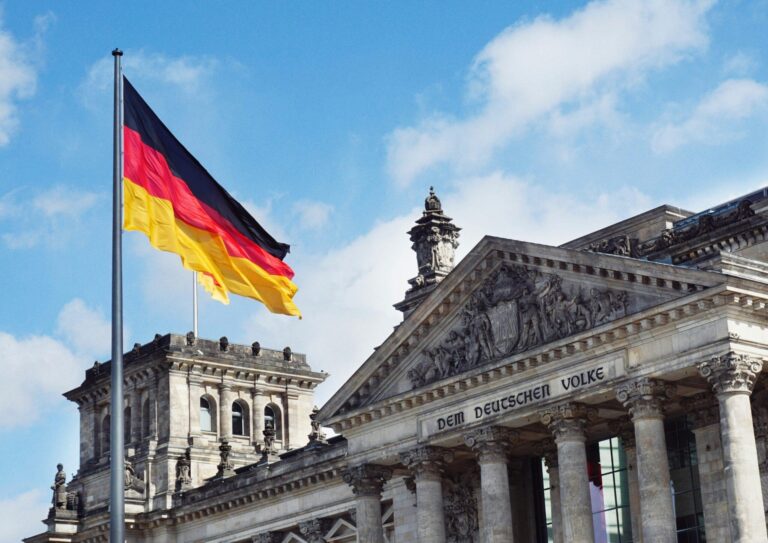As tensions in Gaza continue to shape Middle Eastern geopolitics, the role of international actors in the region’s future remains a subject of intense scrutiny. Among these, Germany’s involvement is increasingly coming into focus, reflecting its broader foreign policy priorities and humanitarian commitments. This article examines the extent to which Germany is expected to engage in Gaza’s reconstruction, political reconciliation, and security landscape, analyzing the challenges and opportunities that lie ahead for Berlin amid a complex and evolving crisis.
Germany’s Diplomatic Role in Shaping Gaza’s Reconstruction Efforts
Germany has emerged as a pivotal actor in the international push towards the reconstruction of Gaza, leveraging its diplomatic channels to mediate peace and mobilize aid. Through sustained engagement with both Israeli and Palestinian authorities, Berlin aims to foster a neutral platform for dialogue while emphasizing humanitarian concerns. German diplomats are actively advocating for coordinated efforts that prioritize infrastructure rebuilding, healthcare improvements, and the revival of essential public services. This approach aligns with Germany’s broader foreign policy focus on stability and human rights in conflict zones.
Key aspects of Germany’s involvement include:
- Facilitating multilateral negotiations between stakeholders
- Channeling financial support through UN agencies and NGOs
- Promoting transparency and accountability in fund allocation
- Supporting educational and economic initiatives to empower local communities
| Area | Germany’s Role | Projected Impact |
|---|---|---|
| Infrastructure | Funding & oversight | Restored utilities & housing |
| Healthcare | Medical aid & training | Improved public health |
| Economic Revival | Microloans & vocational programs | Job creation & stability |
Evaluating Economic Aid and Humanitarian Support from Berlin
Germany’s economic aid to Gaza is poised to focus heavily on reconstruction and vital infrastructure. With significant funding earmarked for water sanitation projects, healthcare facilities, and educational programs, Berlin aims to foster sustainable development amid ongoing instability. However, the delivery of this support faces logistical hurdles due to restricted access and complex political dynamics. Berlin has pledged increased transparency and accountability to ensure that humanitarian funds reach the most vulnerable populations effectively.
Key pillars of Berlin’s humanitarian approach include:
- Financial assistance channeled through international NGOs and UN agencies
- Capacity-building initiatives empowering local governance and civil society
- Emergency relief programs targeting displaced families and medical emergencies
| Year | Allocated Aid (€ million) | Primary Sector |
|---|---|---|
| 2022 | 45 | Healthcare & Sanitation |
| 2023 | 60 | Infrastructure & Education |
| 2024 (Projected) | 75 | Emergency Relief & Capacity Building |
Recommendations for Strengthening Germany’s Influence in Gaza’s Political Stability
Germany’s role in nurturing Gaza’s political stability hinges on a multifaceted approach that prioritizes diplomacy and sustainable development. By investing in inclusive dialogue platforms that engage diverse Palestinian factions, Berlin can foster a more cohesive political environment. Additionally, Germany should leverage its experience within the European Union to facilitate mediated negotiations that bridge gaps between local leaders and international stakeholders, ensuring that peace efforts are not only symbolic but actionable.
Beyond diplomacy, tangible support in socio-economic sectors is crucial. Germany’s strategic assistance could focus on:
- Capacity-building programs for Gaza’s civil institutions to enhance governance and transparency.
- Humanitarian aid integration with long-term infrastructure projects supporting education and healthcare.
- Technical partnerships promoting clean energy and water management solutions to improve living conditions.
| Focus Area | German Contribution | Expected Outcome |
|---|---|---|
| Governance | Training & Workshops | Enhanced Institutional Efficiency |
| Infrastructure | Funding & Technical Expertise | Improved Public Services |
| Energy | Renewable Tech Deployment | Reduced Dependency on Imports |
| Healthcare | Medical Supplies & Training | Better Patient Outcomes |
Key Takeaways
As the situation in Gaza continues to evolve, Germany’s role remains a focal point in shaping the region’s future. Balancing diplomatic engagement, humanitarian aid, and political pressure, Berlin’s involvement will be closely watched by international observers and stakeholders alike. With ongoing developments, Germany’s actions and policies are poised to influence not only Gaza’s reconstruction and stability but also broader Middle East dynamics in the months ahead.




